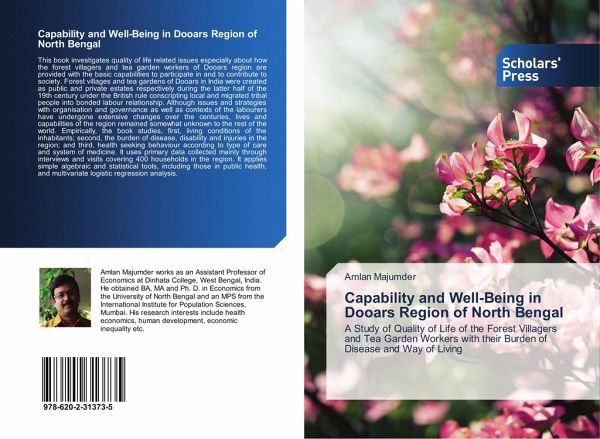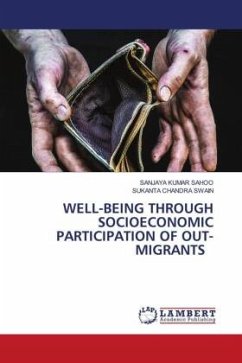
Capability and Well-Being in Dooars Region of North Bengal
A Study of Quality of Life of the Forest Villagers and Tea Garden Workers with their Burden of Disease and Way of Living
Versandkostenfrei!
Versandfertig in 6-10 Tagen
30,99 €
inkl. MwSt.

PAYBACK Punkte
15 °P sammeln!
This book investigates quality of life related issues especially about how the forest villagers and tea garden workers of Dooars region are provided with the basic capabilities to participate in and to contribute to society. Forest villages and tea gardens of Dooars in India were created as public and private estates respectively during the latter half of the 19th century under the British rule conscripting local and migrated tribal people into bonded labour relationship. Although issues and strategies with organisation and governance as well as contexts of the labourers have undergone extensi...
This book investigates quality of life related issues especially about how the forest villagers and tea garden workers of Dooars region are provided with the basic capabilities to participate in and to contribute to society. Forest villages and tea gardens of Dooars in India were created as public and private estates respectively during the latter half of the 19th century under the British rule conscripting local and migrated tribal people into bonded labour relationship. Although issues and strategies with organisation and governance as well as contexts of the labourers have undergone extensive changes over the centuries, lives and capabilities of the region remained somewhat unknown to the rest of the world. Empirically, the book studies, first, living conditions of the inhabitants; second, the burden of disease, disability and injuries in the region; and third, health seeking behaviour according to type of care and system of medicine. It uses primary data collected mainly through interviews and visits covering 400 households in the region. It applies simple algebraic and statistical tools, including those in public health, and multivariate logistic regression analysis.












